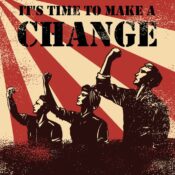or “Broken Window Fallacy” simplified by Scotter
A window is broken. Is this a net negative or positive for the economy?
Look to your intuition. Does this sound to you like a net negative or positive? Some such as Keynes and Krugman say: The net effect on the economy is positive. Why/How? “Because the window owner must pay a glazier to fix the window. Obviously, this stimulates the economy.” So when you hear it that way, it starts to sound like oh maybe this is a good thing!
Some such as Hayek, Swain, Woods, Rothbard, and Mises disagree. Here is my attempt at simplifying their explanations:

Analysis
In both Situation A and Situation B we have three actors.
In Situation A and B, one actor other than the Property Owner obtains $200 from the Property owner. It is irrelevant whether it is the Glazier or the Tailor who receives the $200. So, given the two actors are equivalent, we can focus on what does change in the equation; the Property Owner’s assets. In Situation A where wealth is destroyed, the Property Owner ends up with a window. In Situation B, where no wealth is destroyed, the Property Owner ends up with a window plus a suit. All three actors are part of “the economy”. Situation B has an obvious advantage over Situation A.











Recent Comments